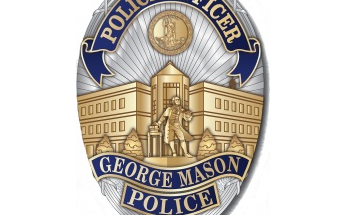By Alexander Kenny, Columnist
Spring in Fairfax welcomed us with 6” of snow. We shoveled, we received an irritating email about “make up days,” but this was a breeze compared to the nor’easter that knocked us back to the Renaissance earlier this month. On Thursday, March 1, WTOP reported Mason and Fairfax County schools would be closed Friday due to wind. Outside of the Midwest’s tornado alley, this was new. Fairfax residents raided grocery stores for bread, bottled water, AA batteries and toilet paper. Apparently, during power outages, people eat prisoner meals and play Nintendo Game Boy in the bathroom. I scoffed. I bought Klondike bars and a kite. I didn’t even bother to charge my laptop Thursday night.
By 11:00 a.m. Friday, 200,000 Northern Virginia residents had no power. Many of us spent the weekend without juice, slowly degrading towards a dystopian “Walking Dead” scenario. After three hours, cannibalism and gun-play seemed reasonable. I stepped outside to witness this silly wind and a pinecone whapped me in the face and never landed. With gusts at 70 mph, children waiting at bus stops would have been pummeled by debris or whisked away to join the Lollipop Guild.
Our behavior during blackouts betrays how helpless and pathetic we are. Without electric toys to distract us, some embraced full-on depression the first hour, refusing to get out of bed until power returned. Some rediscovered Candy Crush, watching the dwindling power bar. Saturday morning, the public library where I work was packed with patrons– charging their phones with our outlets. Many of us realized we had no internet and thought, “I guess I’ll just watch T.V.” Click. Click. Oh right. “I’ll just microwave some dinner.” Oh right. I ended up in bed with a flashlight in my mouth, reading Stevie Wonder’s biography, “Signed, Sealed, Delivered”. During power outages, Stevie Wonder laughs at all of us.
Without power, routines are modified. Coffee was the first casualty. Staircases become murder weapons. Bathroom activities are the weirdest because the door is (hopefully) closed. Aiming becomes difficult. Shaving is too risky. You blindly wipe until you’re really, really sure. Showering by candlelight is awesome and I’ve been taking all my showers this way since the blackout. A note on candles: They’re the reason fire truck sirens perpetually trumpet during blackouts. If you leave a room, blow out the candle first. Never, ever go to bed with a lit candle in the house, even if it’s a tealight in a porcelain dish suspended in a bathtub.
Economists are interested in odd blackout correlations. Flashlight sales increase, of course. What about arts and crafts like watercolors or crayons? I’m curious if low-tech games like Clue and Monopoly sell better during outages. Do families argue more when no distractions are available? (If they’re playing Monopoly, yes. Apples To Apples, no.) Do people spend more money during blackouts? (Sort of. Shopping sales dip, but the money is rerouted to restaurants.)
The most famous blackout is the Nov 9, 1965 New York City blackout. For one night, 30 million people on the east coast were without power. A terrific urban legend reports hospitals in the area saw a spike in births nine months later. There is no statistical evidence for “blackout babies,” but I’m fond of the myth and I’ll certainly try to do my part.
We didn’t miss the heat, light, microwave, cold root beer, blended smoothies or Glade Plug-in laundry smell. We missed the toys. We missed the Netflix, Mario Kart, Wikipedia, Amazon, and YouTube. When power returned, we weren’t studying by candlelight or writing snail mail or practicing piano. We were poking our phones, or playing solitaire, or hibernating until life became livable again– anything to avoid time with our own thoughts and time with each other.




